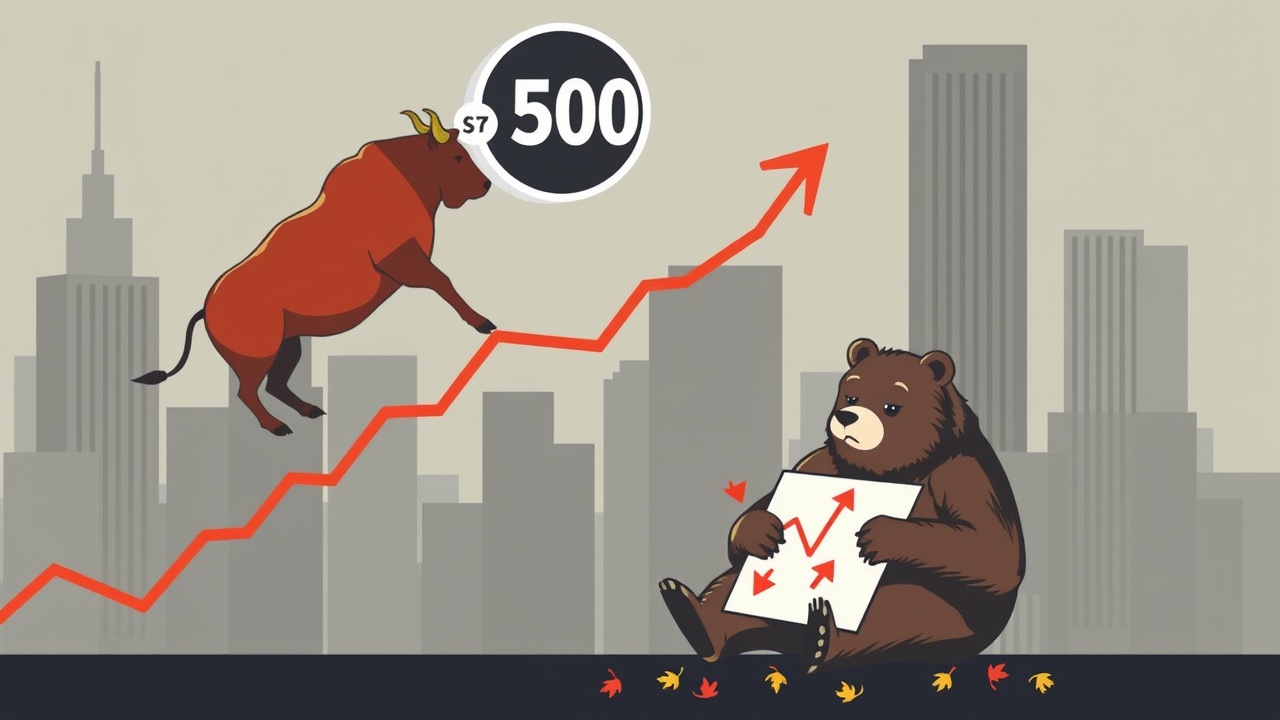Market Reactions to S&P 500 Index Announcement
On Monday, shares of Robinhood Markets, a prominent trading platform, and MicroStrategy, known for its Bitcoin treasury operations, experienced declines in after-hours trading following news that neither company would join the S&P 500 index. This announcement coincided with a wider downturn in the market. The S&P Dow Jones Indices confirmed late Monday that Interactive Brokers Group, a competing brokerage, would take the spot of Walgreens Boots Alliance in the index, effective Thursday.
Analyst Expectations and Market Performance
For some time, analysts on Wall Street had anticipated that Robinhood would secure a place in the S&P 500 due to its growing market presence. Meanwhile, MicroStrategy had recently met the necessary criteria for consideration as its valuation surged alongside rising Bitcoin prices. Companies added to the S&P 500 often enjoy increased visibility and investment from passive funds that track the index.
In after-hours trading, Robinhood’s stock (ticker: HOOD) fell by 0.5% to $107.40, following a 1.26% decline during the regular trading session. On the other hand, Interactive Brokers (ticker: IBKR) saw a 3.9% boost in their after-hours trading to $65.21, following a more modest gain of less than 0.6% throughout the day. The broader S&P 500 index itself concluded the day down by 0.4%.
Recent Trends and Stock Performance
Earlier this June, Robinhood shares had also suffered a setback when the S&P Dow Jones Indices announced no adjustments would be made to the S&P 500 in its quarterly rebalancing, although Robinhood’s stock has risen approximately 190% this year, fueled by renewed interest from retail investors.
Similarly, MicroStrategy’s stock ended Monday down 4.17% and fell another 0.6% in after-hours trading to $341 as it mirrored a decline in Bitcoin’s value, which dipped about 2% after briefly falling below the $110,000 mark.
Criteria for S&P 500 Inclusion
The selection process for companies to be included in the S&P 500 involves a committee that assesses multiple criteria. A candidate must have a market capitalization exceeding $22.7 billion, be based in the United States, and be traded on either the New York Stock Exchange, Nasdaq, or Cboe. Additionally, the shares must meet prescribed requirements for liquidity and trading volume. Recently, Block, Inc., the financial services company founded by Jack Dorsey that has ties to cryptocurrency, was the latest firm to be included in the index, achieving this on July 23.




